


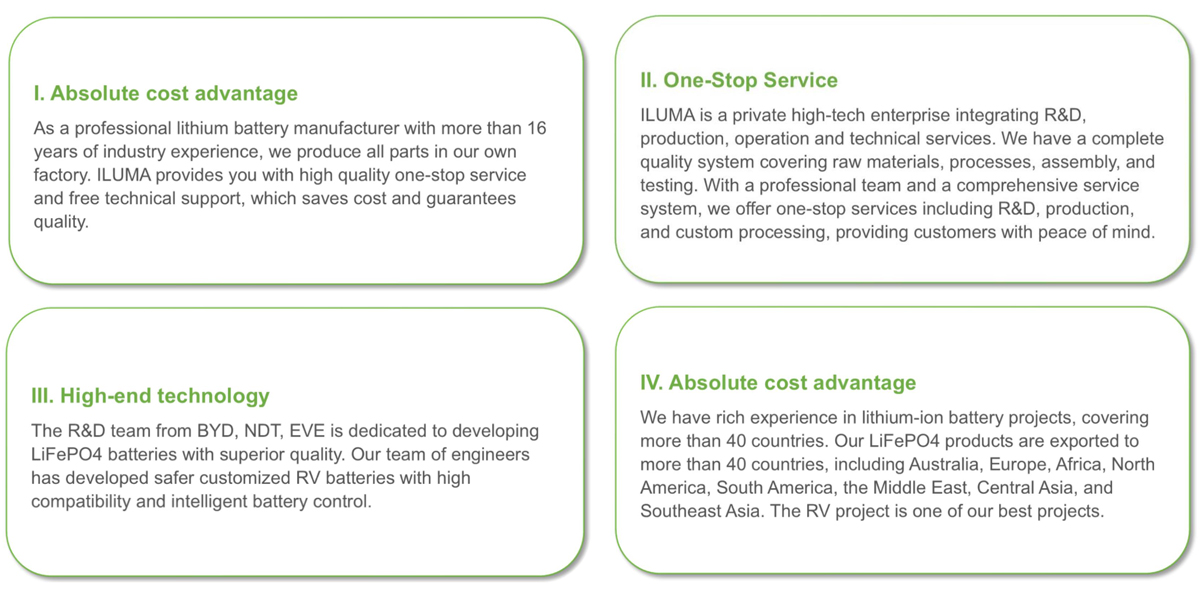
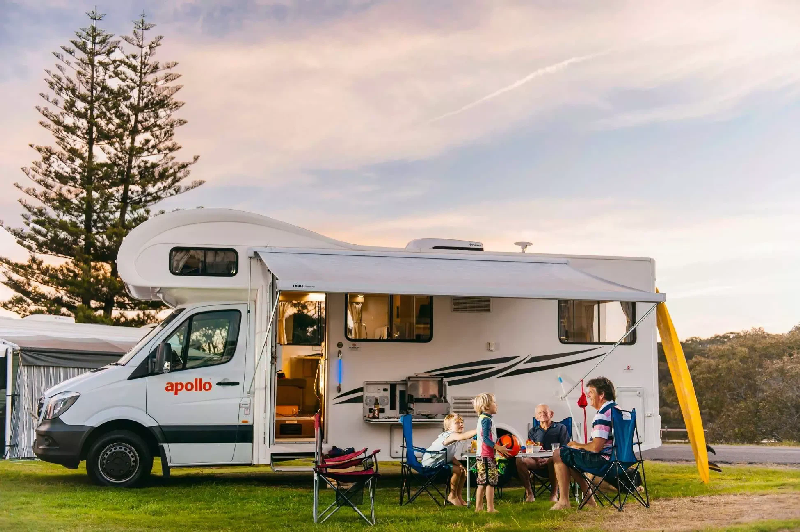 Features
Features
Types and Uses of Lithium RV Battery
Lithium iron phosphate (LiFePO4) batteries are
renowned for their excellent energy efficiency and safety. These lithium
batteries are compact and lightweight, making them easy to carry outdoors and
suitable for locations where lead-acid batteries are impractical. ILUMA LiFePO4
batteries can power various car electrical appliances without any issues, such
as car air conditioners, TVs, washing machines, refrigerators, induction
cookers, and microwaves. Our batteries are extensively used in RVs, campers,
golf carts, and off-road vehicles, offering great convenience to outdoor
enthusiasts and allowing customers to travel wherever they desire…
1. Quick Charge Batteries
Support various charging methods, including
fast charging, which promotes power efficiency and cost-effectiveness. Our
batteries boast an impressive self-discharge rate, enabling charge-as-you-go
convenience and delivering significant economic advantages.
2. High-performance batteries
The battery offers high energy density,
ensuring stable output with welded nickel sheets of high purity that minimize
internal resistance. It also provides balanced discharge and consistent
performance.
3. Smart Batteries
Enhanced intelligence and safety features
include an eight-core BMS protection system: safeguarding against overcharge,
over-voltage, over-current, equalization, temperature fluctuations,
over-discharge, short-circuit, and moisture damage.
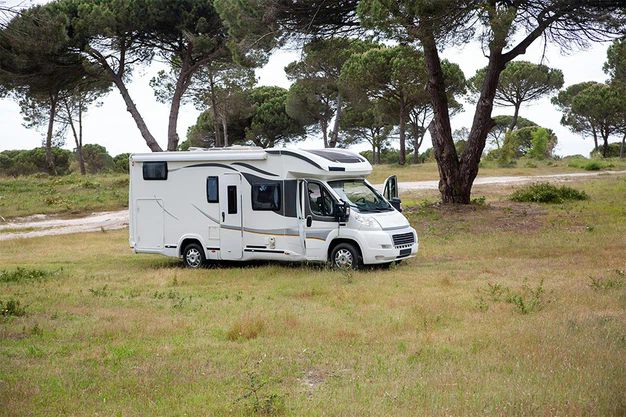
Q: Do RV Lithium batteries need venting?
A: Lithium RV battery typically does not
require venting. Unlike traditional lead-acid batteries that release gases
during charging, lithium batteries are sealed and do not produce gases under
normal operating conditions. This feature makes them safer and more suitable
for enclosed spaces like RVs.
Q: How much should lithium RV battery be
charged when stored?
A: Lithium RV battery is usually recommended
to be stored in a partially charged state rather than a fully charged or fully
discharged state. To maximize the health and performance of lithium batteries,
it is advisable to charge the batteries to approximately 40-60% before long-term
storage and store them in a dry, temperature-suitable environment. Storing
lithium RV battery in a partially charged state (typically about 40-60%
charged) slows down the rate of self-discharge and reduces the potential wear
and tear on the battery due to long-term storage.
Q: Why it is not recommended to connect
lithium RV battery in parallel with lead acid batteries?
A: Voltage difference: Generally, the
standard voltage of lead-acid batteries is 12V, while the standard voltage of
lithium batteries may be 3.7V (single lithium battery) or more than 12V when
multiple batteries are connected in parallel, such a difference will lead to a
voltage mismatch, which will affect the normal operation of the circuit.
Different charging and discharging
characteristics: When mixed use, it may lead to unbalanced charging or
over-charging, over-discharging, thus affecting the battery life and safety.
Different management systems: Lead-acid
batteries are managed by conventional chargers and BMS, while lithium RV
battery require a specially designed lithium battery management system to
ensure safe charging and discharging.
Safety considerations: Due to the different
chemical properties of Li-ion and lead-acid batteries, lead-acid batteries
generate gas during charging, while Li-ion batteries are sealed, and mixing
them will reduce the performance of the battery and damage the battery.
Q: Why is there never enough power in my
RV?
A: Installing higher capacity batteries can
increase your caravan's power reserves. Choosing high energy density lithium
batteries, such as LiFePO4 batteries, can provide longer life and longer
lasting power support. Optimize energy management: Use an intelligent Battery
Management System (BMS) to monitor and optimize the charging and discharging
process. Installing more powerful and efficient charging facilities, such as
solar panels or portable generators, can provide an additional source of
charging for the caravan when no external power source is available.
Q: Are Lithium batteries the best for RVs?
A: Lithium batteries for RVs are undoubtedly
the best choice, not only for extended use but also for reducing the weight of
the caravan and supplying sufficient and long-lasting power.
Q: My RV has lead acid batteries replaced
with lithium batteries, so do I need a specialist charger?
A: Yes, we recommend using a dedicated
lithium RV battery charger to ensure that voltage and current match, avoid
over-charging and over-discharging, extend service life and improve safety; and
using a professionally configured charger can also improve charging efficiency
and reduce charging time.
Q: Do I need to change converter for my
lithium RV battery?
A: You need to check if the existing
converter still meets the charging needs of the lithium RV battery, if the old
converter can't provide a matching charging mode, you need to replace it, which
can effectively prevent charging faults from occurring and improve charging
efficiency.
Q: What consumes lithium RV battery the
fastest?
A: Mainly consider air-conditioning and
kitchen electrical equipment, the short or long-term operation will consume a
lot of electricity, especially microwave ovens which need to run at high power,
consumption of electricity will also be high-speed, try to minimize the use of
high-power electrical appliances in the caravan time or turn off the equipment
when not in use.
Q: How can I solve my lithium RV battery's
lack of power problem?
A: Combine this with your caravan's
electrical equipment and power, choosing lithium RV battery with more ample
capacity and higher efficiency, installing solar panels to provide more power,
and considering a backup generator.
Q: What can damage lithium RV battery?
A: In the past, people would worry that
overcharging Li-ion batteries would lead to overheating, resulting in thermal
runaway. However, ILUMA lithium RV battery technology is already quite mature,
the battery has built-in intelligent BMS to prevent failures such as
overcharging, over-discharging, and short-circuiting. Users can rest assured
that ILUMA lithium batteries can be used in RV.
Q: Will my lithium RV battery fail when it
not used for a long time?
A: Lithium RV battery self-discharge rate is
low, when not in use for a long period, it is recommended that it is best to
charge the battery to a charge of 40-60%, store the battery in a dry, cool
place, and avoid storing it in extreme weather, Lithium RV batteries have a
built-in BMS that will also proactively protect the battery from
malfunctioning, which will keep the battery in the best possible condition when
stored for a long time.
Q: Can I leave my RV inverter connected
all the time?
A: It is possible to leave the inverter
connected at all times if you are using the unit frequently; if you are not
using the inverter for power for a long time, it is recommended that you switch
it off to conserve power, as it will also consume a certain amount of power in
standby mode. At all times, you need to keep an eye on the battery level and
the standby power consumption of the inverter to ensure that the battery level
is sufficient to stabilize the power system.
Q: Which lithium RV battery lasts the
longest?
A: Lithium RV battery has the remarkable
characteristics of deep cycling, a service life of more than 10 years,
maintenance-free and high energy density, and built-in BMS for automatically
protecting the battery.
Q: Can I store my lithium battery in my RV
for the winter?
A: Of course, the ideal storage temperature
for the lithium RV battery is 15°C to 25°C (59°F to 77°F) to maximize the life
of the battery, but that doesn't mean that your lithium RV battery won't work
beyond this temperature range, lithium batteries have a wide range of
temperatures that they can adapt to.
Q: What is the most durable and reliable
lithium RV battery?
A: LiFePO4 Batteries are lighter and more
durable than other types of batteries, have the safest and most stable
chemistry, and are the most durable.
We're professional lithium rv battery manufacturers and suppliers in China, specialized in providing high quality customized service. We warmly welcome you to wholesale lithium rv battery at competitive price from our factory.
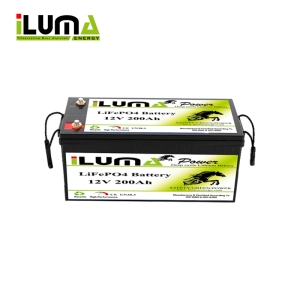
Battery Energy:2560 Wh Rated voltage:12.8V Rated capacity:200Ah ...
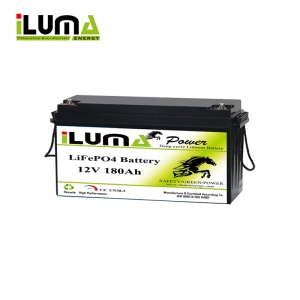
Battery Energy:2304 Wh Rated voltage:12.8 V Rated capacity:180 Ah ...
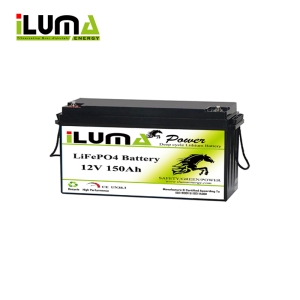
Battery Energy:1920 Wh Rated Voltage:12.8 V Rated Capacity:150 Ah Max Charge ...
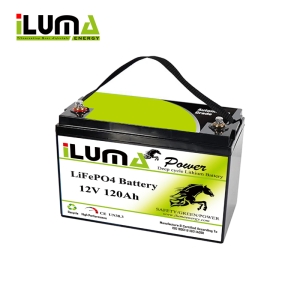
Battery Energy:1536 Wh Rated Voltage:12.8 V Rated Capacity:120 Ah ...
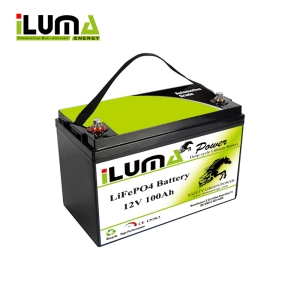
Battery Energy: 1280Wh Rated Voltage: 12.8V Rated Capacity: 100Ah ...
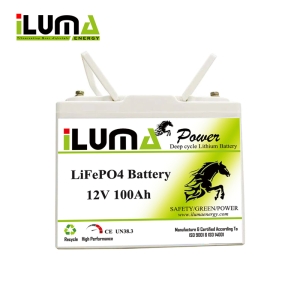
Battery Energy: 1280 Wh Rated Voltage: 12.8 V Rated Capacity: 100 Ah Max Char...
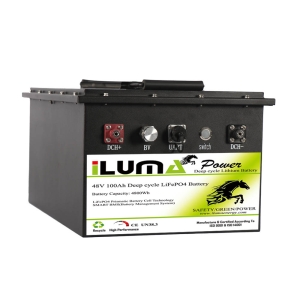
Model No:ILE48V100A Rated Voltage: 51.2V Rated Capacity: 100Ah Battery En...
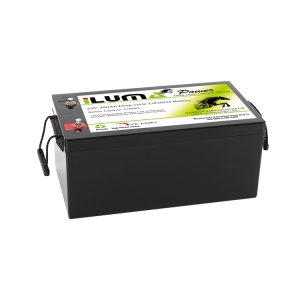
Model No:ILE24V200A Nominal Voltage: 25.6V Nominal Capacity: 200Ah Batter...
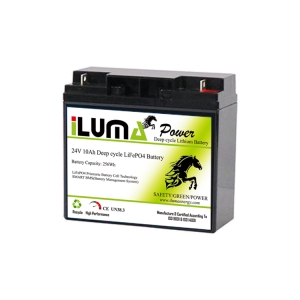
Model No:ILE24V10A Nominal Voltage: 25.6V Nominal Capacity: 10Ah Battery ...
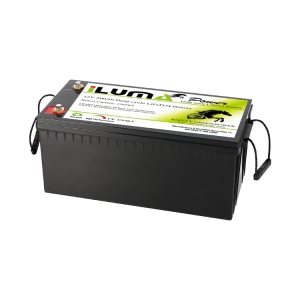
Model No:ILE12V200A Nominal Voltage: 12.8V Nominal Capacity: 200Ah Batter...
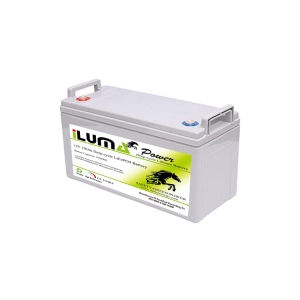
Model No:ILE12V150A Nominal Voltage: 12.8V Nominal Capacity: 150Ah Batter...
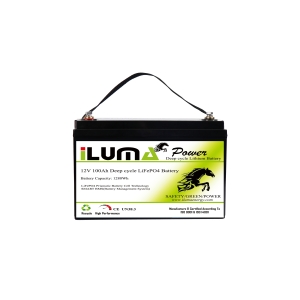
Model No:ILE12V100A Nominal Voltage: 12.8V Nominal Capacity: 100Ah Batter...
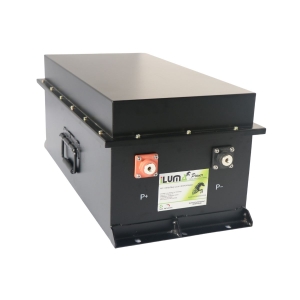
Model No:IN48 Nominal Voltage: 48V Nominal Capacity: 100Ah Battery Capacity: 4.8kwh Waterproof Level...